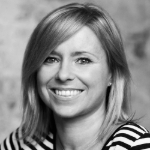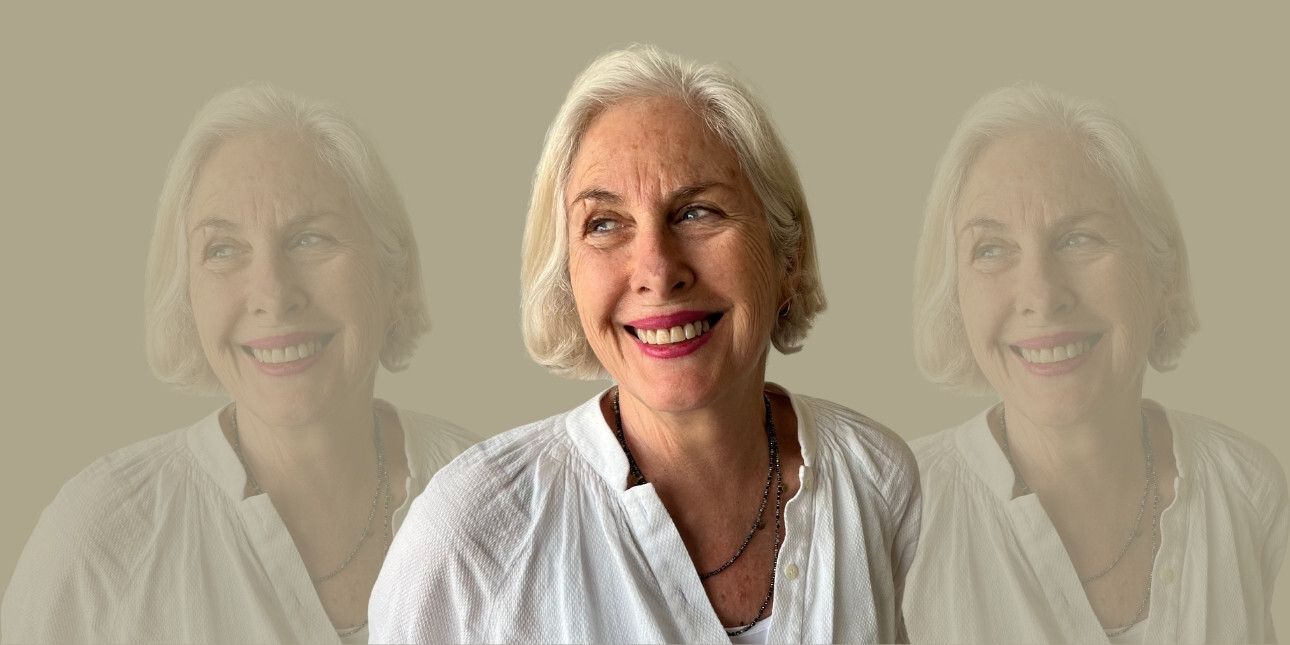Louise Chunn on mental health in the creative sector and shaping women’s mags
The award-winning editor and founder of Welldoing discusses the changing face of magazines and how she created a thriving online platform for therapists and clients.
A New Zealander, Louise Chunn began her UK media career as a junior writer at Just Seventeen magazine in the 1980s, before working her way up to editor. Later, at the Guardian she modernised the Women’s Page, covering topics like fashion, sex, and alternative lifestyles, while at Vogue she further shaped the narrative by introducing the conversation on race, body size and age, highlighting diverse stories and perspectives. After stints at InStyle, Elle and Psychologies, she founded Welldoing, a platform to help people find therapists. Today, it offers resources for bespoke therapy matching and mental health guidance, for individuals and businesses.
I started my journalism career in New Zealand in the 70s as a junior writer for the Auckland Star. Masses of huge names came through Auckland, so I interviewed everyone from Fleetwood Mac to Sylvester Stallone.
I moved to London in 1982. There was just so much creativity and energy, and the youth culture was amazing. It made London such an exciting place to be.
My career turning point was getting a job on Just Seventeen for its launch. It set me on the path to working in magazines. It taught me so much about understanding your readers.
Just Seventeen’s launch editor David [Hepworth] was inspirational. He took a chance on me. He said, ‘Why should I give this kind of job to a girl from New Zealand, who won’t know anything?’ And I told him, ‘I’ll find out.’
I always carried a little book of maps of the UK in my bag. If someone mentioned, say, a shopping centre in Harrogate, I’d look it up. I never wanted to be caught not knowing what was going on. David used to tell us a good editor could edit anything – even ‘Practical Fish Keeping.’
I was 27 when I got the job, so I was probably one of the older people on the team. But we were all in it together, working into the night. To see it become a huge success was amazing. I ended up becoming editor for a short time before going on maternity leave, then joining Elle.
At Elle, there was an idea that women weren’t to be boxed in, by age or type. The then editor, the late Sally Brampton, was amazing – she made bold decisions. Everything we did was aiming to help ordinary women feel a sense of autonomy.
By the time I arrived at the Guardian, the paper was in competition with the Independent. It worked in the Guardian’s favour, encouraging it to spread its wings. I brought my sub-editor from Elle with me. We stood out, because we were magazine women in a newspaper world. That was really unusual at the time.
During my time as the Guardian’s Women’s Page editor, I shifted the tone. It had been very traditional 1970s feminism, but I modernised it. We still ran powerful stories but we also covered topics such as fashion, makeup, sex, and alternative lifestyles.
We published a full-page feature on female genital mutilation – something few people in the UK had heard about back then. I remember people feeling faint in our editorial meetings – mainly men. In most cases, the people running things, the MDs and publisher, were men. I remember when I finally got my first female publisher – for InStyle in the 21st century! It took a long time.
At Vogue, I saw firsthand how powerful content could shape culture. As deputy editor [to Alexandra Shulman], I had the freedom to cover things to do with race, body size, and age. One feature on body size included two girls from an eating disorder unit. It was about making a statement.
I enjoyed editing Psychologies – things were changing then, budgets and teams were smaller but I was very pleased with the magazine and I learned so much.
Looking back at my time in magazines – especially women’s magazines – I realise now that many of the people I worked with were likely neurodiverse. There was a lot of high energy, mood swings, and behind the scenes, some struggled with serious mental health issues. People would come to me asking for time off, and it was clear they needed deeper support.
I genuinely believe most people can get help, through therapy, their GP, or simply taking time to recover. That belief is shaped by working with someone like Sally Brampton [who lost her battle with depression in 2016], who was creative, bright, and deeply inspiring. She made a real impact on others, and I believe she could have made it through with the right support.
Welldoing came from my own experience of looking for a therapist. There were hundreds of them within five miles of where I lived in London; and though I considered myself relatively well-informed, I didn’t know how to choose between them – there were so many different training backgrounds and terminology.
I raised the money for Welldoing through my redundancy pay and some money from my mother. Slowly, we grew, and now Welldoing is a fully-fledged platform where people can select their therapist based on affordability, expertise or other filters. You can select multiple areas you need help with – we’ve got all the content to guide you. It’s now filled with content, probably about 4,000 posts.
I’m a female founder, which sounds great, but starting a business when you’re older is incredibly hard. And going it alone is tough – there are so many ways things can go wrong, especially with tech, marketing, and social media. I’m naturally cautious, especially when it comes to sharing content about therapy and mental health, since there are so many differing views. The key is to be balanced and stay aware of what’s happening in the world
Our bespoke patient-therapist matching service saves everyone time and money, by starting out with the right person – but it’s still a big decision. Opening up to a stranger, even if they are qualified and professional, can feel hugely challenging. Welldoing is there to help and support, encouraging people to take the first steps.
We host Zoom interviews with authors, therapists, and people with lived experience, where therapists can ask questions live. These sessions are then added to our platform for members, and we sell access via Eventbrite for non-members. We also help companies design tailored mental health support programmes, providing content and monthly newsletters for businesses.
I’m often asked if I think gen Y and gen Z may be over-diagnosing – labelling everyday feelings like pre-presentation nerves as anxiety. I think the pandemic played a big part in this. Covid affected people in very different ways. Some, especially women, felt isolated or fearful. Those with existing health issues were scared of getting sick, and many lost loved ones. All of this has had a real and lasting emotional impact.
Everyone goes through tough periods and transitions in life. And while society's turn to individualism has brought benefits, it’s also led people to focus more on their own experiences – sometimes at the expense of the broader community. I think some of the messaging around menopause, parenting young children, and even the debates around trans issues can be seen as part of this individual identity focus. Yet the truth is, we live in communities. I do worry that if we focus too much on the differences, it creates division and makes it harder to come together as a community – and we need to get along.
People can hold vastly different beliefs, but we still need to work, live, and play together. I believe it’s all possible.

Lysanne Currie is the editor of Influence. She previously edited Director magazine for the Institute of Directors and Sky magazine for British Sky Broadcasting. Lysanne is the founder and CEO of content agency Meet the Leader.
.jpg&w=728&h=90&maxW=&maxH=&zc=1)
